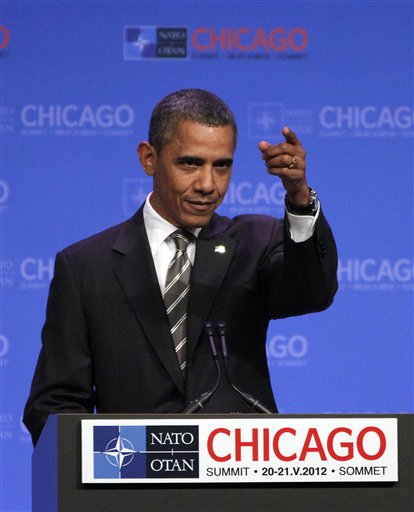President shows true leadership in NATO remarks
By Robert L. Price

President shows true leadership in NATO remarks
By Robert L. Price
One thing was clear to me after attending this week’s NATO Summit: The event was – clearly – not about domestic or international economics. It wasn’t about how to maximize corporate profits. Nor was it about the virtues of private equity firms.
But at the last press conference on the last day of the summit Monday, the talk went off topic. After a question from a Bloomberg journalist, the conversation veered from security into the murky depths of U.S. domestic politics. President Obama, normally known for his cool, deliberate delivery, seemed to go completely off script, and as a result, gave the most poignant, politically savvy, yet truthful comments I’ve heard him give during his political career.
The journalist in question asked about comments made by Newark Mayor Cory Booker during last Sunday’s episode of Meet The Press. Booker referenced campaign ads attacking Mitt Romney’s record while he led the private equity firm Bain Capital (the clips claim Romney destroyed working class jobs by the hundreds during his tenure at Bain). “This kind of stuff is nauseating to me on both sides,” Booker said. “Enough is enough. Stop attacking private equity.”
Many have questioned Booker’s motives, given his history as an Obama supporter and surrogate. Some speculate it’s because Booker receives large campaign contributions from private equity firms, including from Bain employees. Booker has since walked back his comments at an Olympic-style pace.
In his response, Obama defined what he sees as the president’s role. “When you are president, as opposed to head of a private equity firm, your job is not to simply maximize profit, but to make sure everyone has a fair shot,” he said. “If your main argument is showing how you can make a lot of money for investors, you don’t understand the job of being president.”
I agree with the president wholeheartedly. His job requires him to sit on the world stage and represent his country (and his city) with panache, as he did in his comments.
I would offer that being president means discussing issues beyond simple tribalism or domestic politics, as his opponents– or his well-meaning, but misguided supporters – often do. They have the luxury of such exercise; the president does not. His words and actions are measured against much broader concerns. He must consider those who don’t support him as well as those who do. The President of the United States must take into consideration how his words and actions affect the lives and attitudes of people on the other side of the globe, not just those of his base, and certainly not just for the next election cycle. Obama said a president must consider the long-term ramifications of any decision or policy, not just short-term gains. A colleague of mine who sat close by said Obama “gave a political answer, but he nailed it.”
I’ve had many bosses in my professional career. Most have been good; others, not so good. The great ones created opportunity and order, and provided leadership in my career development. The main thing these managers were judged on was how profitable their projects were. If they did well, they and their team were handsomely rewarded.
But in spite of their successes, most of the really profitable leaders I worked with either left the firm or were let go. Why? Because they lacked the leadership skills and vision required to move our office into the future.
The president concluded the press conference Monday by thanking the people of Chicago for dealing with the inconvenience and traffic during the summit, but added it was the price Chicago had to pay for being a world-class city and hosting world-class events like NATO.
Some of our political leaders need to take a lesson from Obama’s press conference Monday to learn what being “world-class” really means.
Robert L. Price is an architect and interior designer based in Shanghai, China. He is Worldview’s arts and architecture contributor and a Global Cities co-contributor. Price also serves as Senior Associate and Technical Director for Asia at Gensler, a global design firm.
